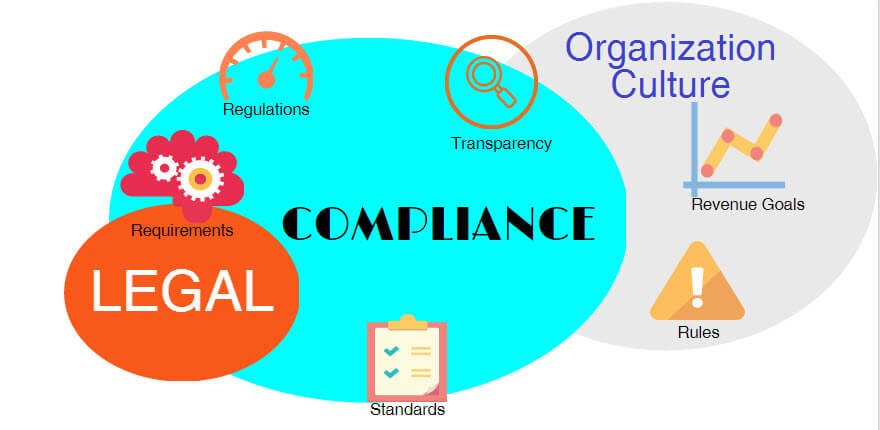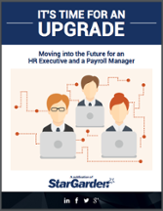Compliance Truly is Like Oxygen

One great thing about being located in Vancouver is seeing the entrepreneurial spirit that moves the people in this city. Since Vancouver is a start-up hub for Canada, Vancouverites witness a lot of rising stars, including many billion-dollar evaluated companies in the IT field. Up until very recently, one of these promising companies, Zenefits, was developing a great reputation for innovation. Being in the HCM segment of the insurance industry, a highly regulated domain, Zenefits was a closely-watched organization. Therefore it was a surprise when its CEO stepped down due to the company’s failure to comply with regulations. What happened?
Zenefits, founded in 2013, offers cloud-based human resources management solutions tailored to the health care insurance industry. It quickly became one of the fastest growing software companies in that market, and forecasts remained promising as the company developed. However, last week the company announced the resignation of Parker Conrad, the founder and CEO, due to regulatory compliance failures. These failures, according to the company, were due to a lack of internal processes, controls and actions around compliance. Conrad’s departure, and the issues that surfaced surrounding it, have resulted in Zenefits losing its largest customer and facing an uncertain future.
Zenefits certainly hasn’t been the only thriving company to get tripped up in regulatory issues lately. A few months ago, the United State EPA (Environmental Protection Agency) issued a notice of violation of the Clean Air Act to Volkswagen. The EPA found that the automaker was manipulating the results of laboratory emissions testing to maintain compliance with emissions level limits. Testing revealed that although the vehicles passed the regulatory testing, they emitted up to 40 times more nitrogen oxide while driving in “real world” conditions than was permissible. As a result of the scandal, VW recalled millions of cars worldwide and posted its first quarterly loss in 15 years in late October 2015 – in addition to preparing for not only anticipated EPA fines but also consumer lawsuits and shareholder actions.
Both of these examples illustrate the increasing importance that regulations and compliance have in the modern business world. The reputational risk and loss of trust that companies can suffer affects even billion dollar companies. When such incidents occur, other businesses are left to question what the right way to enforce compliance is -- if there even is one -- and if these company’s failures could have been avoided. Governance structures, the role of boards, and the decision-making skills of the top leadership all come under much closer scrutiny. Employee morale, trust, and organizational culture also suffer.
A systems-based analysis suggests that the solution doesn’t have to be complex. Just having real-time, proactive accountability checks in place can economically ensure ongoing compliance. Not only does this maintain uninterrupted legality, it also prevents the lengthy and wasteful exercise of going back through various events in history and checking who was at fault for failures. Such retroactive finger-pointing exercises increase the amount of administrative work necessary to ensure compliance, and contribute to a rising scepticism and erosion of confidence in a company. Zenefits and other organizations that face media spotlight for such incidents are faced with the enormous challenges of retaining employees, rebuilding goodwill, and winning back the trust of customers in addition to trying to keep the promises of increased profits.
While entrepreneurship rewards risk taking, it is easy to get carried away in those ventures and neglect stringent enforcement of regulatory compliance and an office culture that supports sustainable growth. This puts hundreds of jobs at risk of being whisked away when things go south. Stories like that of Volkswagen and Zenefits highlight the importance of leadership in an organization to the predominant organizational culture. Compliance and success depend on having a team that can call out each other for emphasizing innovation and risk over strict adherence to rules and regulations. Organization would be wise to consider implementation of internal systems that enforce accountability at every level, before it is investigated and enforced by outside regulators.
As Zenefits struggles to rebuild and restore its reputation and profitability, its new CEO, David Sacks, has emphasized that compliance is essential to its success. In his first address to employees, he observed that organizations wither just as easily as they shoot up if its importance is overlooked.
“For us, compliance is like oxygen. Without it, we die.”
StarGarden’s integrated IT solutions can help your business implement internal control systems to ensure continued regulatory compliance and have accountability measures through our position based model. Contact us today to find out how you can try our most powerful and user-friendly integrated HR system ever, StarGarden 5.0, absolutely free.

